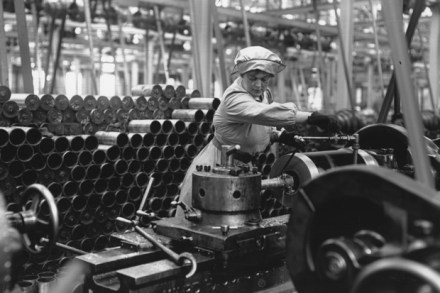The Spectator at war: The Industrial Reserve
From ‘The Industrial Reserve’, The Spectator, 12 June 1915: The Industrial Reserve (227 Strand, W.C.), which was started eight weeks ago, and has already placed over nine hundred men in useful employment, directly or indirectly concerned with war work. These men are for the most part drawn from classes who do not ordinarily come into














